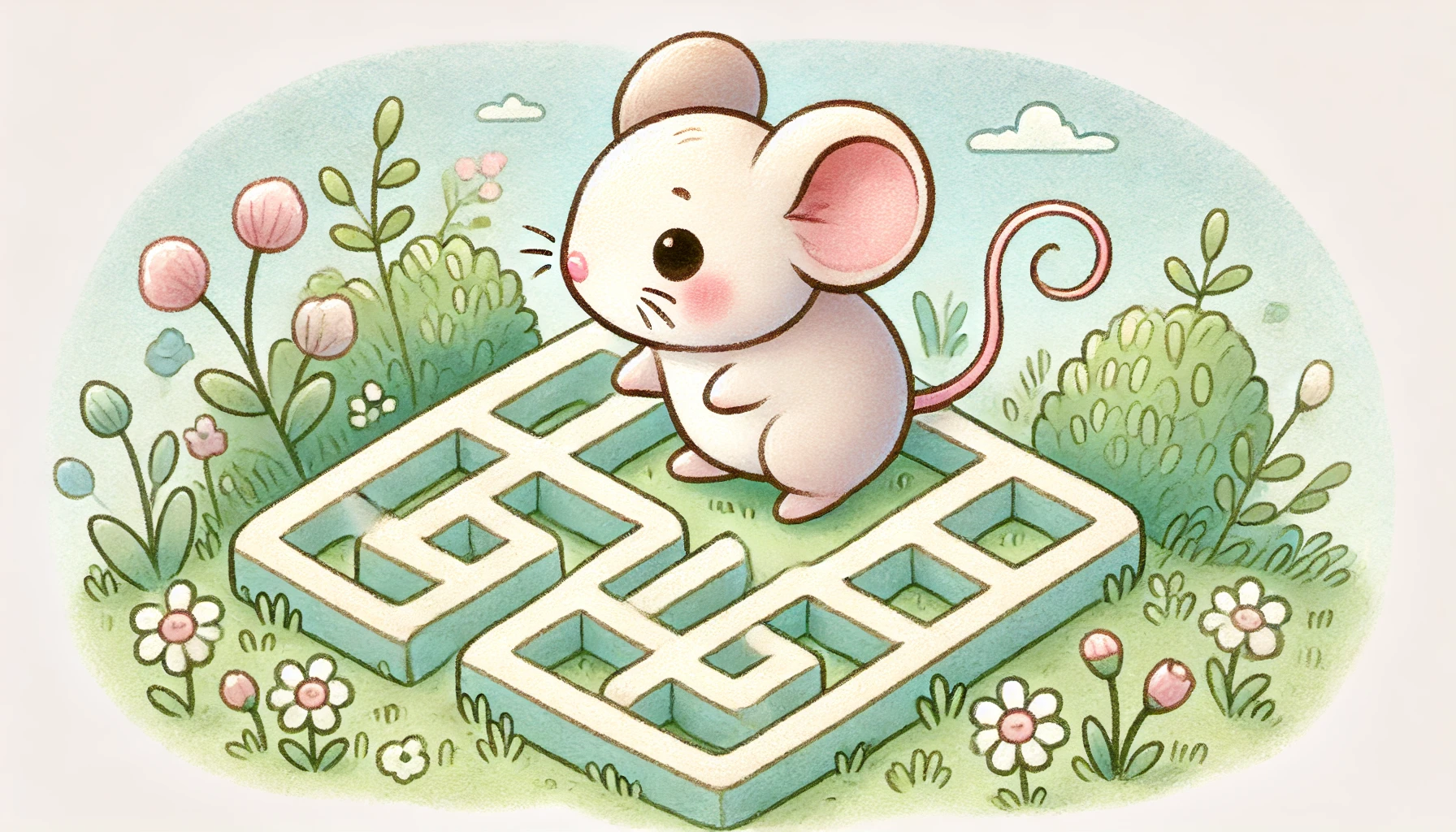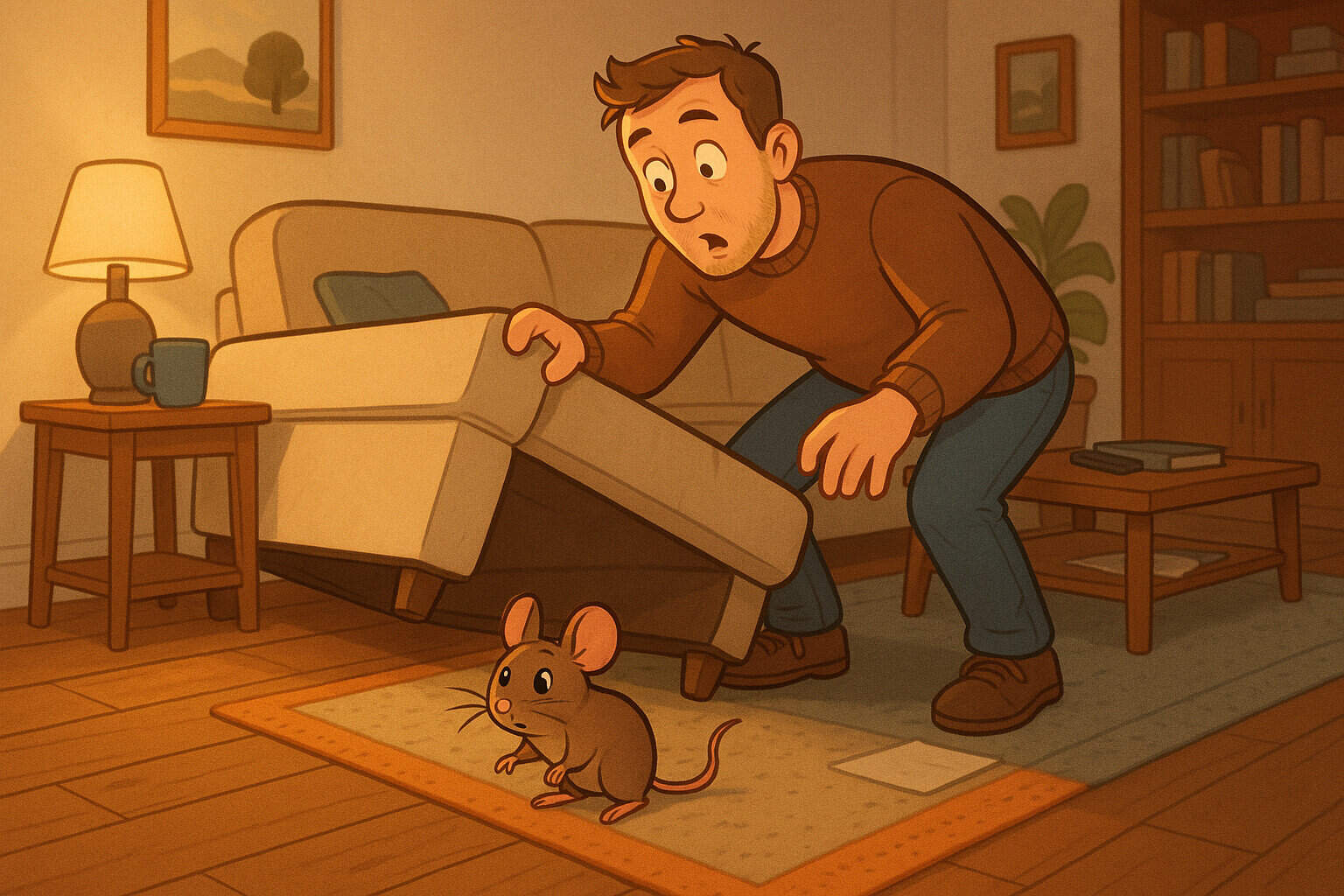Fear of Mice: Musophobia
Understanding Musophobia
Have you ever felt that sudden jolt of panic when you see a tiny mouse scurrying across the floor? Hopefully, not enough to make you drop the sofa you’re in the process of moving from your mother’s garage, and having to put up with day’s worth of jokes thereafter. All that aside, if a mouse has ever made you jump or scream then you are definitely not alone! This fear of mice, known as musophobia, is the same as any other phobia, and can have a significant impact on your quality of life.
Find out How to Overcome Your Fear with Creature Courage
Musophobia, or the fear of mice, is a specific type of rodent phobia that can manifest in various ways. Though it can be used to explain overarching fear of mice, rats and rodents, the correct term for a fear of rats is Murophobia, and for the fear of rodents, Suriphobia.
Getting back to the subject at hand, and holding a mouse in your hands is something you could comfortably expect to do after one of our therapy sessions, you may be someone who experiences intense anxiety and panic attacks from the simple thought of mice, or you may feel physically uncomfortable or avoid situations where you might expect to encounter one.
In this short article, we’re delving into the causes, symptoms, and effective strategies available to overcome Musophobia. Indeed, you’ll find out more about how to utilise our therapy techniques that have seen countless individuals free themselves from animal phobias through working with Creature Courage.
Common symptoms of Musophobia
Having a fear of mice can cause many symptoms for a sufferer, ranging from mild sweating; which though uncomfortable can usually be dealt with without too much interruption, to intense anxiety; which can cause major disruption to your daily life. This short list covers the symptoms generally felt by most sufferers:
- Intense Fear and Anxiety – Feeling an overwhelming dread or panic when confronted with mice or even images or sounds associated with them
- Physical Symptoms – A rapid heartbeat, increased sweating, trembling, difficulty regulating breathing, and nausea
- Avoidance Behaviour – Going out of your way to avoid places where mice might be present, however, unlikely that may seem to other people
Causes of Musophobia
The exact causes of Musophobia can vary from person to person, however, there are several factors considered to be key contributors to developing a fear of mice:
- Traumatic experiences: A negative childhood encounter with a mouse, such as being bitten or startled, can lead to lasting fear
- Learned behaviours: Classical conditioning and observational learning have been shown to play a significant role in the development of phobias, which is to say that If a parent or caregiver has a fear of mice, they may very well pass this fear onto their children from the actions they display when around an animal they are scared of or uncomfortable around
- Evolutionary factors: Some experts believe that the fear of rodents may have evolved as a protective mechanism to avoid diseases associated with these animals

Fascinating Facts About Mice
While mice can be a source of fear for many people, they are also fascinating creatures with unique characteristics:
- Social creatures: Mice are highly social animals that thrive in groups. They have complex social structures and exhibit behaviours like grooming and playing
- Incredible intelligence: Mice are known for their intelligence and problem-solving abilities. They can learn new tasks quickly and quickly learn to navigate complex tasks, such as finding their way around a maze
- Essential role in ecosystems: Mice play a vital role in ecosystems as both predators and prey. They help control populations of insects and are a food source for many other animals
Overcoming Musophobia
If you’re struggling with Musophobia, there are effective strategies to help you overcome your fear, indeed, cognitive-behavioural therapy and exposure therapy have be well-researched ad utilised as effective treatments for phobias, and make up the backbone of our animal phobia treatment:
- Cognitive-behavioural therapy (CBT): CBT can help you identify and challenge irrational thoughts and beliefs about mice. By gradually exposing yourself to mice in a controlled environment, you can learn to manage your fear, and free yourself from the constraints that come with fear
- Exposure therapy: This involves gradually exposing yourself to mice in a safe and supportive setting, and comes with the backing of a study from the British Psychology Society. Starting with less frightening exposures and gradually progressing to more challenging ones can help you overcome your fear now and for the long-term
- Hypnotherapy: Hypnotherapy can be a helpful tool for individuals with deep-seated fears. By accessing the subconscious mind, a therapist can help you reprogram the negative associations you have built up about mice over the years
We, at Creature Courage, are a leading provider of phobia therapy, including for Musophobia and many other animal phobias. Our experienced therapists can help you develop personalised strategies to overcome your fear and live a more confident life – don’t let Musophobia hold you back any longer!
Take the First Step in Overcoming Your Fear
FAQs – Fear of Mice
Is it normal to be afraid of mice?
It’s perfectly normal to be afraid of mice, most people have some level of fear to a great many animals and many people experience Musophobia – it’s a common phobia. There’s no need to feel ashamed or embarrassed, the important thing is that it’s not something you have to live with any longer, it can easily be treated
How can I tell if I have Musophobia?
If you experience intense fear or anxiety around mice, avoid situations where you might encounter them, or have physical symptoms like sweating, trembling, or rapid heartbeat, you probably have some form of Musophobia
What causes Musophobia?
The exact causes of Musophobia can vary, but it often stems from traumatic experiences, learned behaviours, or evolutionary factors
Are mice dangerous?
While mice can carry diseases, the risk of contracting a serious illness from a mouse is very low. Most mice are harmless and simply trying to survive
Can I overcome Musophobia on my own?
It’s possible to overcome Musophobia on your own, but seeking professional help can significantly increase your chances of success and guide you in the right way, step-by-step. A therapist should also provide you with tools and strategies to manage your fear
What kind of therapy is best for Musophobia?
Cognitive-behavioural therapy (CBT) and exposure therapy are often the most effective approaches for treating Musophobia. However, our workshops are specifically designed to work you through in an appropriate pattern (at the right pace) to bring you life-long, lasting relief from your animal phobia
How long does it take to overcome Musophobia?
The length of time it takes to overcome Musophobia varies depending on the severity of the fear and your commitment to the therapy. However, with consistent effort, the majority of people make significant progress in a relatively short period
Is it safe to have a pet mouse if I have Musophobia?
If you have a strong desire to have a pet, working with a therapist can help you gradually overcome your fear to be able to safely and confidently interact with mice. You know what, you’ll probably enjoy it, too!
Where can I get help for Musophobia?
Creature Courage offers specialised therapy for Musophobia and other phobias. Our experienced therapists will provide you with personalised support and guidance.

